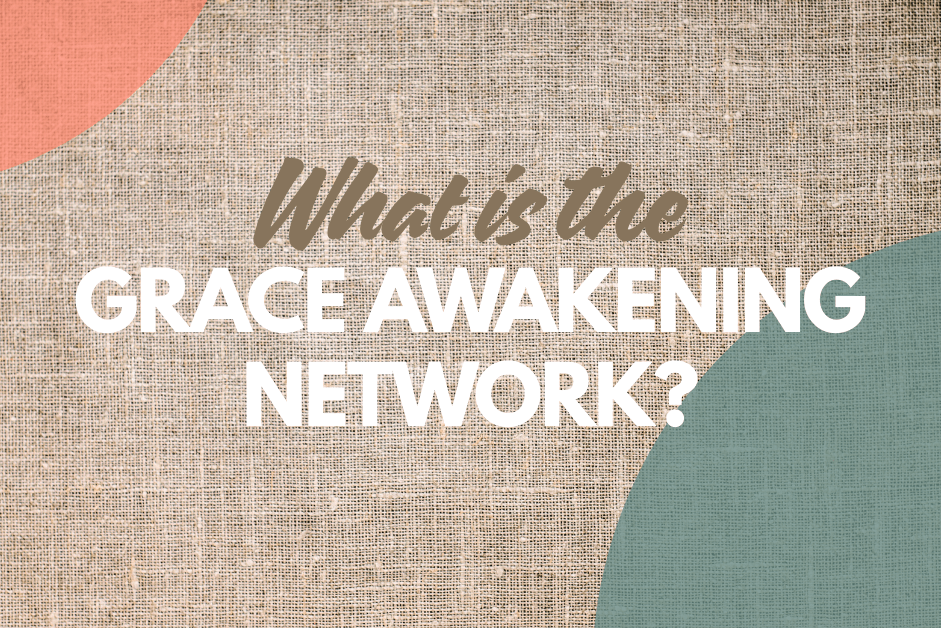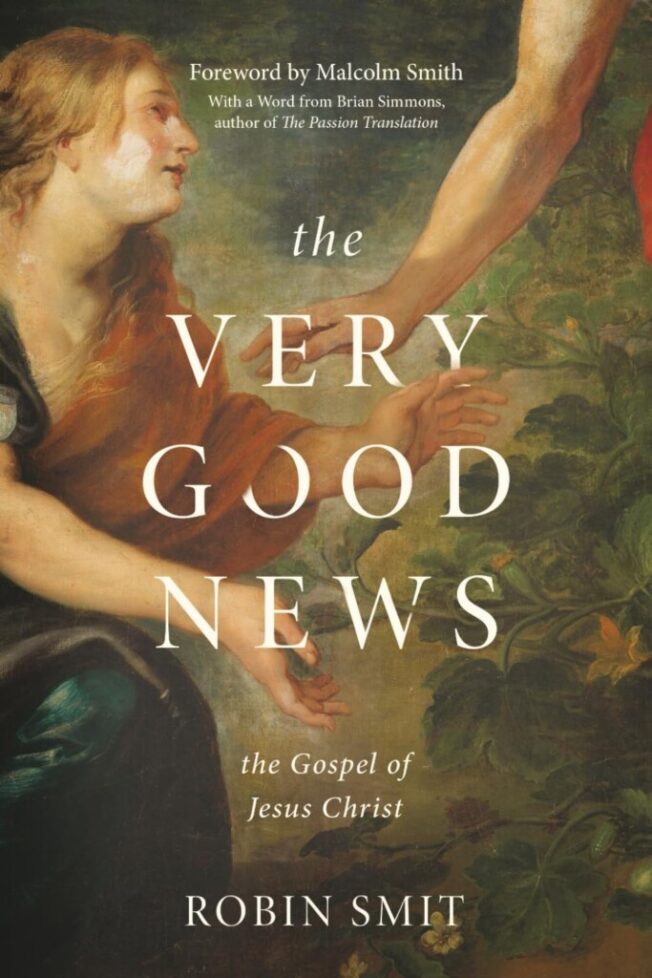Imagining Faith—In the quiet moments of reflection, have you ever wondered why some people seem to trust God so effortlessly while others struggle? Perhaps the answer lies not in intellectual understanding but in something more fundamental to human experience—our imagination.
The ancient text of Isaiah 26:3 provides a fascinating insight: “The steadfast of mind you will keep in perfect peace because he trusts in you.” While most translations render this as “mind,” there’s compelling evidence that the original Hebrew word is more accurately translated as “imagination.” This subtle but profound distinction changes everything about how we understand faith.
Most of us have been taught to approach faith as primarily intellectual—a matter of believing certain doctrines or trying to convince ourselves of spiritual truths. We recite scriptures and make declarations, yet often feel disconnected from genuine trust. Why? Because we’re trying to trust God with only the analytical, left side of our brain when true faith emerges from our imagination.
This isn’t about fantasy or make-believe. Rather, imagination is the God-given faculty that allows us to see what isn’t yet manifest, to experience the future in the present, and to internalize truth until it becomes part of us. When we approach faith through imagination, we move beyond religious formulas into authentic relationship.
Think about how you navigate everyday life—you imagine yourself getting to work before you leave home; you picture the cookies before you start baking; you envision the outcome of a project before beginning. This same fundamental human capacity is essential for genuine spiritual trust. When our imagination becomes “stayed” or anchored in God’s reality rather than in fearful possibilities, we experience the perfect peace that Isaiah describes.
Let’s explore how this understanding of faith-filled imagination can transform our spiritual journey, using one of history’s most dramatic examples: a shepherd boy who faced a giant with nothing but five stones and an imagination full of God’s faithfulness…
Key Takeaways
- True Trust Goes Beyond Intellect: Authentic faith isn’t merely intellectual agreement but engages our imagination—the ability to see what isn’t yet manifest. When we only try to trust God with analytical thinking, we miss the deeper experience of faith that comes through imagination.
- Our Imagination Shapes Our Reality: What we consistently imagine eventually becomes our lived experience. As Proverbs suggests, “As a man thinks in his heart, so is he.” Our current circumstances often reflect what we’ve been imagining about ourselves and God for years.
- Biblical Meditation Activates Faith-Filled Imagination: Unlike Eastern meditation that empties the mind, biblical meditation fills the mind with God’s promises and allows us to see ourselves within God’s story. This process transforms abstract truths into personal reality.
- Fear Is Transmitted Through Passive Imagination: Like Israel’s army facing Goliath, when our imagination is passive, we easily absorb the fearful images projected by the world around us. Social media, news, and fearful people can program our imagination if we’re not intentional.
- God Delivers Challenges Into Our Hands As Opportunities: David didn’t see Goliath as a special crisis requiring extraordinary intervention. Instead, he viewed the giant as an opportunity God had delivered into his hands to demonstrate covenant faithfulness—just another day of walking in God’s promises.

Understanding Biblical Imagination
Imagination is not a luxury of the creative mind—it’s essential to human existence. Every day, we navigate our world through mental pictures. Before you arrived at work this morning, you imagined the route. Before baking cookies, you envisioned the finished product. Our minds naturally think in pictures, anticipating possibilities before they manifest.
This fundamental human capacity is neither good nor evil in itself. Like our hands or our speech, imagination is a neutral tool that can serve either light or darkness. Hitler, one of history’s greatest imaginers, harnessed this power for destruction. Yet the same faculty that can envision horror can also perceive divine possibilities.
Unfortunately, many Christians have been taught to distrust imagination, relegating it to the realm of fantasy or secular creativity. This misunderstanding robs believers of one of their most powerful spiritual resources. The Hebrew scriptures present imagination not as something to avoid but as something to consecrate.
In Biblical terms, imagination is “the making place”—the workshop where what we know transforms into what could be. When we meditate on Scripture, we’re not meant to merely memorize verses for spiritual merit badges. True meditation involves seeing ourselves within God’s narrative, experiencing His promises as present realities rather than distant ideals.
This differs dramatically from Eastern meditation, which seeks to empty the mind. Biblical meditation fills the mind with God’s word until it permeates our identity. The ancient Hebrews understood this as “muttering”—speaking God’s promises to oneself until they become internalized. Joshua 1:8 instructs: “Do not let this Book of the Law depart from your mouth; meditate on it day and night.” The goal isn’t information storage but transformation—becoming what we contemplate.
Consider how this process unfolds: When you read “The Lord is my strength,” meditation moves you from acknowledging a general truth about God to declaring your personal experience—”I AM is my strength.” The shift happens in your imagination, where you begin to see yourself empowered by God’s presence. This isn’t wishful thinking; it’s participating in what God declares to be true.
Our imagination becomes the preview of coming attractions in our spiritual journey. Like movie trailers that give audiences a taste of films not yet released, our sanctified imagination lets us experience tomorrow’s promises today. Jesus himself operated this way, frequently saying, “The hour is coming and now is”—collapsing future certainties into present experiences through faith-filled imagination.
This explains why Proverbs warns us to “guard your heart above all else, for it determines the course of your life.” Today’s reality is yesterday’s imagination made manifest. The person you are now reflects what you’ve been imagining about yourself and God for years. Your imagination is continuously broadcasting, shaping not only your own experience but influencing others around you. Like a radio tower, you’re always transmitting the pictures that dominate your inner world.
The question is not whether you’ll use imagination, but which images will define your spiritual reality. Will your imagination be captured by fear and limitation, or will it be “stayed upon” God’s covenant faithfulness? The choice determines whether you’ll live in perfect peace or perpetual anxiety.
The David and Goliath Example: Three Kinds of Imagination
Few biblical narratives illustrate the power of imagination more vividly than the famous confrontation between David and Goliath. Rather than viewing this as merely a children’s story about courage, we can see it as a profound study in how different types of imagination shape our reality.
In the Valley of Elah around 1000 BCE, three distinct patterns of imagination collided, each creating entirely different outcomes for its possessor. Let’s examine them one by one:
Goliath’s Dark Imagination
Goliath, standing nearly ten feet tall with bronze armor weighing 126 pounds, wasn’t just physically imposing—he was a broadcasting tower of intimidating images. For six weeks (84 consecutive confrontations), he had projected the same terrifying vision: Israel’s inevitable defeat. In his imagination, these people were already crushed underfoot, their land seized, their future destroyed.
His imagination wasn’t passive—it was focused, honed, and deliberately transmitted. Each morning, he would position himself where the sun’s reflection on his polished armor made him nearly impossible to look at directly. His booming voice carried his imagined outcome across the valley: “Send me a man to fight, and whoever wins takes all.” His imagination had already tasted victory so completely that he could almost feel Israel’s wealth in his hands.

Israel’s Passive Imagination
On the opposite hillside, King Saul and Israel’s army demonstrated a different kind of imagination—passive and receptive. Without a strong vision of their own, they became the perfect screen for Goliath’s projected images. Each morning, they would form battle lines and shout their war cry, only to scatter moments later when Goliath appeared.
Their minds had become like empty vessels filled with Goliath’s narrative. Around breakfast tables, soldiers rehearsed the giant’s greatness to one another, exaggerating his size and strength to justify their fear. They had completely forgotten their identity as God’s covenant people, promised victory over their enemies. Instead, they saw themselves as “grasshoppers” before giants—exactly how they imagined Goliath perceived them.
This passive imagination created a herd mentality where fear spread like contagion. Though physically unharmed, they were already living in Goliath’s imagined future—paralyzed, defeated, and despairing. They shouted Scripture-based battle cries while simultaneously running away, a perfect picture of faith divorced from imagination.
David’s God-Anchored Imagination
Then came David, a 14-15 year old shepherd boy whose imagination operated in an entirely different realm. Walking into camp on that fateful morning, David arrived with expectation and excitement. While everyone else saw Goliath, David saw God’s covenant faithfulness.
What made David different wasn’t special training or supernatural gifting—it was simply that his imagination was “stayed” on God. Through hours of meditation while watching sheep, David had internalized God’s promises until they became his identity. He didn’t try to believe God would protect him; he saw himself being protected. He didn’t recite promises about strength; he experienced himself as strong in God’s strength.
When David heard about the six-week standoff, his reaction was bewilderment. “Why is everyone standing around letting this man insult God’s army?” To David, this wasn’t a special crisis requiring extraordinary faith—it was just another day of living in covenant relationship with God. Just as he had faced lions and bears that threatened his sheep, he would face this threat with the same confident imagination.
Most remarkably, David didn’t see himself entering Goliath’s story—he saw Goliath as a minor character in God’s ongoing story. As he later phrased it, “The LORD has delivered Goliath into my hand”—as if the giant were a gift, an opportunity to witness God’s faithfulness in a new way.
This imagination wasn’t prideful or shaming toward others. Despite being the only one who understood what was happening, David positioned himself as a servant: “Let no one’s heart fail. I’ll handle this.” He represented not only the cowering army but countless Israeli families whose futures hung in the balance.
When that single stone found its mark—entering the tiny opening in Goliath’s helmet—it wasn’t just David’s victory. The entire army, who moments before couldn’t imagine victory, suddenly saw themselves as conquerors. They became “little Davids,” charging forward with the same confidence that had seemed impossible minutes earlier.
The lesson is clear: imagination doesn’t just describe reality—it creates it. The same circumstances produced three entirely different outcomes based solely on what each party envisioned as true.
David’s Faith-Filled Imagination
What truly distinguished David wasn’t extraordinary courage or superhuman ability—it was the content and quality of his imagination. Let’s examine the specific characteristics that made David’s imagination so powerful and how we might cultivate similar faith.
Rooted in Identity, Not Circumstances
When David arrived at the battlefield, he came already secure in his identity as someone under God’s covenant protection. Unlike the soldiers who had forgotten who they were, David’s imagination was saturated with the reality of belonging to God. He wasn’t trying to achieve victory; he was simply living from the victory already established in God’s promises.
This teenager hadn’t been drafted into the army—he was delivering cheese and bread to his brothers. Yet he walked into that crisis already prepared because his imagination had been shaped by hours of meditation in the hills while watching sheep. There, away from the noise and pressure of battle, he had internalized God’s promises until they became his identity.
Transformed Experience into Testimony
David’s confident imagination wasn’t blind optimism; it was built on personal history with God. When questioned about his ability to face Goliath, David immediately referenced previous encounters with lions and bears that had threatened his flock. “The Lord who delivered me from the paw of the lion and the paw of the bear will deliver me from the hand of this Philistine.”
Each victory became part of his imaginative pantry—stored experiences he could draw upon when facing new challenges. Rather than compartmentalizing these experiences as exceptional moments, David saw them as confirmations of who God consistently is. His imagination wasn’t creating fantasy but recognizing pattern.
Focused on the End, Not the Process
Interestingly, David never seemed concerned with exactly how victory would unfold. He didn’t strategize about Goliath’s weaknesses or calculate the physics of his slingshot. His imagination was fixed on the outcome—Goliath defeated—while remaining flexible about the means. This is precisely how imagination typically works: we see ourselves at the destination without necessarily plotting every step of the journey.
When King Saul tried to outfit David with royal armor, David immediately recognized it as unnecessary. His confidence wasn’t in methodology but in relationship. He didn’t need special equipment because he wasn’t facing a special challenge—just another day of walking in covenant with God.
Reframed Challenges as Opportunities
Perhaps most profound was how David interpreted Goliath’s presence. While everyone else saw an insurmountable problem, David saw a divine appointment. He later expressed this perspective by saying, “The Lord has delivered Goliath into my hand.” This wasn’t arrogance but a completely different framing of the situation—Goliath wasn’t a crisis but a gift, an opportunity to witness God’s faithfulness in a new way.
This reframing changed everything. Instead of asking, “Is it God’s will that we defeat Goliath?” (as if God might want His people destroyed), David assumed the victory as given and saw himself as simply participating in God’s already-determined outcome.
Transmitted Faith Rather Than Fear
Like Goliath, David was also a broadcaster—but of an entirely different signal. His words, facial expressions, and body language radiated confident expectation. Soldiers gathered around him, momentarily catching glimpses of his vision before their fears resurged. His imagination was so vibrant that it temporarily disrupted the fear-based consensus.
When David stepped onto the battlefield, he represented not just himself but every cowering soldier and every Israeli family whose future hung in the balance. Though physically alone, his imagination carried the weight of an entire nation. And when that stone found its mark in Goliath’s forehead, the army that moments before couldn’t imagine victory suddenly saw themselves as conquerors.
Remained Humble Despite Unique Vision
Despite being the only one who “got it,” David didn’t use his clearer vision to shame others. He didn’t criticize the king for forgetting Deuteronomy’s promises or berate the soldiers for their fear. Instead, he positioned himself as a servant: “Let no one’s heart fail. I’ll handle this.”
This humility reveals a crucial truth about godly imagination: it never uses superior insight to demean others. True faith-filled imagination emerges from love and serves others rather than exalting self. David knew he wasn’t superior—he had simply kept his imagination “stayed” on God while others had forgotten.
The lessons from David’s imagination reveal that authentic faith isn’t about mustering enough belief to convince God to act. It’s about aligning our imagination with what God has already declared to be true—and then living from that reality even when circumstances suggest otherwise.

Application for Today: Reclaiming Sacred Imagination
In our contemporary world, perhaps more than any other time, we face an epidemic of imagination capture. The battle for our mental images has never been more intense or sophisticated. Let’s explore how we can apply these ancient principles to our modern challenges.
Recognizing the Imagination War
We live in an era where our minds are constantly bombarded with images designed to shape our reality. Social media algorithms, news cycles, advertising, and entertainment all compete to program our imaginations with specific narratives. Like Israel’s army repetitively watching “Goliath’s newscast” for 84 consecutive days, many of us passively consume whatever images are projected toward us.
This passive consumption creates what the prophet Isaiah warned about: “Do not fear what they fear; do not dread what they dread.” We absorb collective anxiety through our unguarded imagination, often without realizing it. The dark energy fields that once paralyzed Israel’s army now flow through our smartphones and screens.
Just as Israel forgot their covenant identity, many believers today have forgotten who they are in Christ. We recite scriptural “battle cries” on Sunday while our imagination remains captured by anxiety, scarcity, and fear throughout the week. We pray for healing while imagining sickness; we ask for provision while picturing lack; we request peace while running anxiety-filled scenarios in our minds.
Reclaiming Sacred Imagination
The path forward begins with recognizing imagination as a sacred faculty meant to be consecrated, not ignored. The apostle Paul understood this when he instructed believers to “take every thought captive” and to focus our minds on “whatever is true, whatever is noble, whatever is right.”
Here are practical steps to begin reclaiming your imagination:
- Identify Your Current Imagination Diet: What images are you regularly consuming? News, social media, conversations, and entertainment all feed your imagination. Begin noticing which sources leave you feeling fearful and which ones inspire faith.
- Practice Biblical Meditation: Rather than simply reading Scripture, learn to see yourself within it. When you read about God’s faithfulness, protection, or provision, pause to actually picture yourself experiencing these realities. Let these images sink from your intellect into your imagination.
- Build Your Testimony Pantry: Like David, begin collecting personal experiences of God’s faithfulness. When you face new challenges, deliberately recall these previous victories. Your imagination needs raw material to work with—personal testimonies provide the strongest foundation.
- Reframe Challenges as Deliveries: Practice David’s perspective that challenges are “delivered into your hands”—opportunities to witness God’s faithfulness rather than crises to survive. This isn’t denying difficulty but recontextualizing it within a larger narrative of God’s purposes.
- Guard Against Herd Imagination: Be wary of collective fear. When those around you begin amplifying anxiety, consciously choose to maintain your God-anchored imagination rather than being swept into group panic.
The Higher Stakes Today
While David faced a physical giant, today we confront what the apostle Paul called “principalities and powers”—systems and structures that shape collective imagination. The battle isn’t just personal but cultural. Our society desperately needs people whose imagination remains anchored in transcendent truth rather than shifting narratives of fear.
Christ doesn’t just offer us personal peace—He invites us to become transmitters of a different signal in our workplaces, communities, and families. Like David entering Israel’s paralyzed camp, our God-saturated imagination can disrupt consensus reality and create space for others to see differently.
The apostle Paul captures this perfectly: “We demolish arguments and every pretension that sets itself up against the knowledge of God, and we take captive every thought to make it obedient to Christ.” This isn’t just cognitive agreement but imaginative alignment with divine reality.
Remember, you ultimately become what you imagine. The person you are today reflects what you’ve been imagining about yourself and God for years. The good news is that imagination can be redirected. As you begin to see yourself through God’s eyes—as beloved, empowered, and purposed—your lived experience will gradually align with this higher vision.
The invitation stands today just as it did for David: exchange your empty, fear-filled imagination for the imagination of truth. Christ is your true identity. Begin today to imagine what it truly means that “for you to live is Christ,” and watch as your reality transforms.
Frequently Asked Questions
Q: Isn’t imagination dangerous for Christians? I thought we were supposed to avoid it.
A: This is a common misconception. Imagination itself is a neutral faculty—like your hands or your tongue—that can be used for either good or evil. The Bible never condemns imagination itself, only imagination directed toward wickedness. In fact, scripture frequently encourages holy imagination through meditation.
God created humans with imagination as a reflection of His own creative nature. We’re designed to “see” possibilities before they manifest. Jesus himself taught primarily through parables—stories that require imagination to understand. When He said “the kingdom of heaven is like…” He was deliberately engaging our imagination to grasp spiritual truth.
The real danger isn’t imagination itself but leaving it unconsecrated. When our imagination remains passive, it easily absorbs whatever fearful images surround us, just as Israel’s army absorbed Goliath’s intimidating narrative. Sacred imagination actively partners with God’s promises.
Q: What is a practical way I can begin developing faith-filled imagination?
A: A powerful practice is to read Bible stories using all your senses—placing yourself within the narrative rather than simply analyzing it. For example, when reading about David facing Goliath, imagine the morning sun on your skin, the weight of the stones in your hand, the dust beneath your feet. What are the smells of the battlefield? What emotions are you feeling? What expressions do you see on the soldiers’ faces?
This approach transforms Scripture from information to experience. Instead of merely knowing that “God protects His people,” you begin sensing what it feels like to be protected. The Hebrew approach to meditation involved this kind of immersive imagination—muttering God’s promises while seeing yourself living within them.
Start with familiar stories and spend 10-15 minutes imagining yourself present. Let the details emerge naturally without forcing them. Over time, this practice helps you “inhabit” God’s promises rather than just reciting them.
Q: How do I know if my imagination is coming from God or just my own wishful thinking?
A: This is an excellent question that reveals wisdom. Not everything we imagine is divinely inspired. Here are some guidelines for discerning the source of your imagination:
- True God-inspired imagination aligns with Scripture. It never contradicts God’s revealed character.
- It produces the fruit of the Spirit—love, joy, peace, patience, etc.—rather than pride, anxiety, or fear.
- Like David, godly imagination doesn’t demean others or exalt self. It serves others from a place of humility.
- It’s willing to wait for God’s timing rather than forcing outcomes through manipulation.
- It remains flexible about methods while fixed on promises. David wasn’t attached to using armor or specific weapons—he was attached to God’s faithfulness.
Remember that imagination, like any spiritual faculty, matures with practice. Start with what you know is true from Scripture and let your imagination explore how these truths apply to your specific circumstances. Let community help test your discernment.
Q: If my circumstances are truly difficult, isn’t positive imagination just denial?
A: Faith-filled imagination isn’t denial—it’s seeing beyond current circumstances to a greater reality. David didn’t deny Goliath’s size or strength; he simply saw something bigger—God’s covenant faithfulness.
Jesus himself faced the cross with clear-eyed recognition of its horror while simultaneously seeing “the joy set before him.” He didn’t minimize suffering but contextualized it within a larger narrative.
Biblical imagination doesn’t pretend problems don’t exist. Rather, it refuses to let problems define what’s ultimately possible. It acknowledges the giant while remembering the God who makes giants look small by comparison.
This approach is actually more honest than only seeing difficulties, because it accounts for all available data—both the visible challenges and the invisible spiritual realities that ultimately determine outcomes.
Q: How do I maintain faith-filled imagination when surrounded by fearful people?
A: This is perhaps the greatest challenge facing believers today. Like David entering Israel’s fear-filled camp, you’ll often find yourself swimming upstream against currents of collective anxiety. Here are some practical strategies:
- Limit exposure to fear broadcasts: Be intentional about your media consumption. Notice which sources leave you feeling helpless and which ones strengthen your faith.
- Find your shepherd hills: David developed his God-centered imagination away from the crowd, in quiet places with God. Create space in your life for solitude where your imagination can be renewed.
- Connect with faith transmitters: Find people whose imagination remains anchored in God’s faithfulness regardless of circumstances. Their frequency will help stabilize yours.
- Speak what you see: David didn’t just think differently—he verbalized what he saw. Speaking faith-filled perspectives interrupts fear contagion and creates alternative possibilities.
- Serve rather than criticize: David didn’t shame the fearful soldiers; he offered to serve them. When you see differently, use that insight to lift others rather than condemn them.
Remember that your imagination is always broadcasting. By maintaining your God-anchored perspective amid fearful circumstances, you become a transmission point for hope, just as David was for an entire paralyzed army.

Conclusion: Becoming Imagination Bearers
The story of David and Goliath isn’t just an ancient tale of courage—it’s a profound revelation of how imagination shapes spiritual reality. In a world increasingly dominated by fearful narratives, we’re invited to become people whose imagination remains anchored in something more substantial.
When we allow our imagination to be “stayed upon” God, we experience the perfect peace Isaiah described—not as a temporary emotional state but as a foundational reality that persists even amid challenges. This isn’t naive positivity but the deepest form of trust, seeing beyond visible circumstances to spiritual truths that ultimately determine outcomes.
What giants stand before you today? What challenges seem insurmountable? The invitation is clear: exchange the passive, fear-filled imagination that absorbs cultural anxiety for the active, faith-filled imagination that participates in God’s promises. Your circumstances may not change immediately, but your capacity to face them certainly will.
Remember, imagination isn’t just about what we see—it’s about who we become. Today’s reality is yesterday’s imagination made manifest. As you allow your imagination to be transformed, you’ll gradually become what God has already declared to be true about you.
In the words of the apostle Paul, “We have the mind of Christ.” Perhaps the greatest adventure of faith is discovering what’s possible when we begin to imagine as He does.
-
Visit Brandon’s Podcast Here ⇒ First Things Productivity
GAN TV RECOMMENDED PROGRAMS
- Grace Life Church, Jamie Wright and his Series: Am I Enough? Watch it ⇒HERE
Watch Gan TV host, Don Keathley’s Releasing Your Imagination below:











